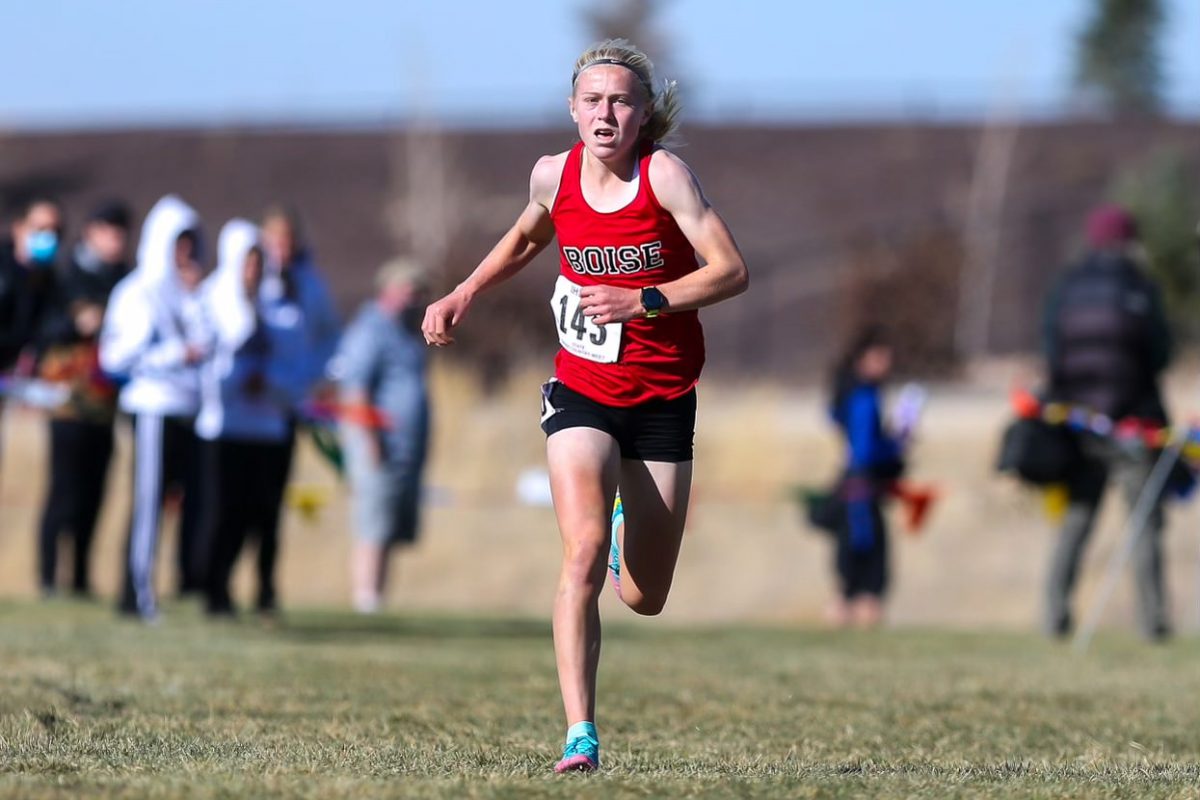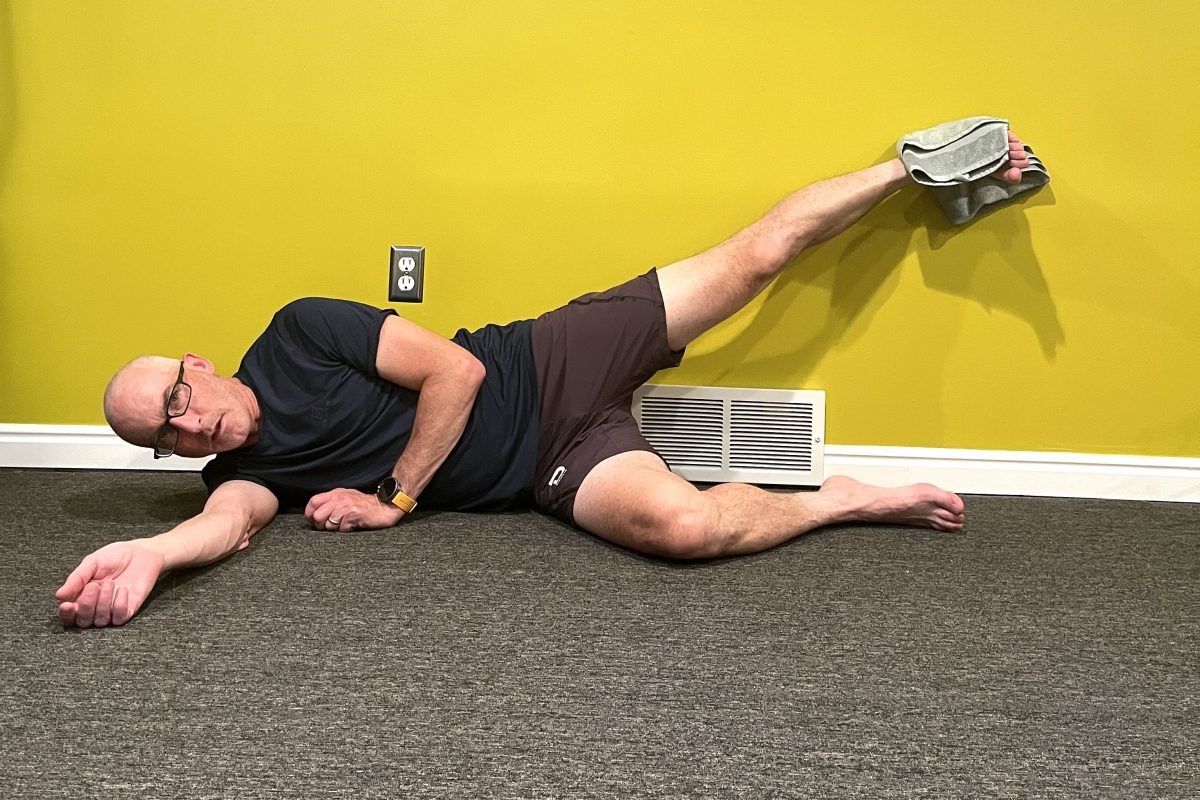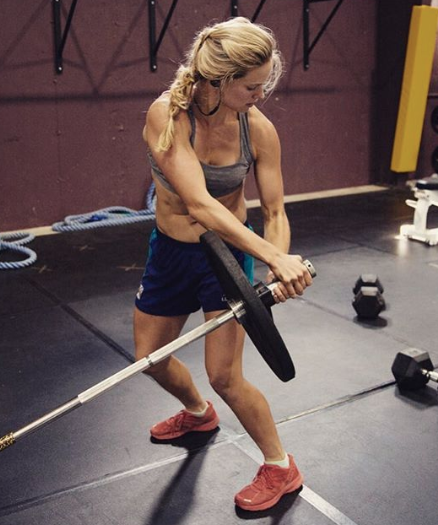
This week FasterSkier presents a workout from British national ski team members Nichole Bathe and Annika Taylor. Last season, both Bathe and Taylor competed overseas on Great Britain’s national nordic team. They were interviewed on the phone last fall and email this spring.
***
May. For some, it’s a month marked by caps and gowns and new beginnings. Last year, May was a month in question for Nichole Bathe. The Madison, Wisconsin, native had just graduated from the University of Alaska Fairbanks (UAF) with a degree in justice and social work. But immediately starting a nine-to-five job was not what she wanted to do.
During the school year, she had raced for UAF’s ski team, qualifying for three NCAA Championships and finishing as the top American in fourth place as a freshman. As a senior, she qualified for U23 World Championships in Midway, Utah. A few of Bathe’s coaches suggested that she continue her cross-country career after college.
“I had no idea what I was going to do at graduation in May,” said Bathe, now 23. “But I was always wondering what it would be like to focus on skiing as a whole, instead of having school in the way of that.”

By June of last year, Bathe made a phone a call. The recipient was Annika Taylor.
Taylor presented a unique situation in nordic sport. After growing up in Truckee, California, and graduating from the University of New Hampshire (UNH) with a chemistry degree in 2015, Taylor — a dual citizen – moved to Europe to ski for Great Britain’s national team, which is based in Lillehammer, Norway. (Taylor holds one passport through the United Kingdom and one through the United States, thanks to her father who is originally from the U.K.)
Bathe contacted Taylor because she shared a similarly unique family background. Both of Bathe’s parents hail from Britain, and since she was born in the U.S., Bathe is an American citizen.
If Bathe wanted, she could apply for dual citizenship and follow Taylor’s path, moving to Norway to ski for Britain. (Bathe only needed one of her parents to hold a valid British passport order to apply. Not all countries permit individuals to become dual citizens; the Czech Republic and Estonia, for example, require individuals to rescind one).
In their conversation together, Bathe asked Taylor about the logistics of moving to Europe. Taylor was reflective in her advice. She encouraged Bathe take into consideration not just the training she hoped to receive, but also the lifestyle changes she would have to make.
“When you move to a new country, you get challenged as a person,” Taylor, 24, explained.
During her first full year abroad, Taylor trained predominantly with a professional Norwegian team. Her teammates at the time spoke little English, she explained. While she had a background in basic Spanish, Taylor’s exposure to Norwegian was minimal when she arrived in Lillehammer.
The process of learning the language came gradually, she said. After a few months, Taylor had picked up conversational phrases. A few months after that, she purchased a grammar book to better her understanding of sentence syntax. Meanwhile, her primary language instruction stemmed from training sessions and talking to her teammates in Norwegian.
“When you’re out training with people and you’re out for three hours, you’re practicing constantly, asking questions and trying to explain yourself,” she said.

In the end, Taylor said the language barrier was worth breaking through. She recalled a strength session she did with Norway’s Heidi Weng (now the two-time reigning overall and distance World Cup champion) and the confidence it gave her. Most importantly for her, Taylor was able to train with athletes who are World Cup regulars.
“I needed women who had international experience and not just experience in the U.S.,” Taylor said of her decision to join the British team.
After speaking with Taylor, Bathe realized she felt similarly. She had skied for Central Cross Country (CXC) program for the past nine years, returning each summer to train with the CXC Team, while a student at UAF. By the end of her college career, she’d tallied a fourth place, seventh, 12th, and 13th in the NCCA Championship races she’d contested. She’d competed at five U.S. senior nationals, finishing on the podium in third (as the second American) in the classic sprint in 2014.
But Bathe wanted to test herself outside the U.S.
“I felt that I was going to get the most out of taking a year or two to ski if I went all in and moved to Europe and had the chance to train with high-caliber people all the time,” Bathe said.
Bathe sent her application to the U.K. last spring, was granted dual citizenship and moved to Lillehammer in the early fall. Her application included proof of her parents’ original U.K. citizenship documents and Bathe’s U.S. birth certificate information.
“It’s actually pretty streamlined once they have all the information,” she explained.
This winter, Bathe earned a spot on the British national team. Her focus for the season remained on U23 World Championships in Goms, Switzerland. There, her best result was 37th in the 10-kilometer classic.
“I was lucky to race in Europe all year and really learned a lot about racing and just training in general,” Bathe wrote in an email. “Even though it wasn’t the year I had hoped for results-wise, it was a really useful year for me and I know now what I need to do to race faster and to just ski better in general.”
Taylor, who came into the season prequalified for the 2018 Winter Olympics, explained that she came down with an illness that plagued her from October through February. At her first Olympics in PyeongChang, South Korea, she finished 60th in the 15 k skiathlon and 75th in the 10 k skate.
“My body just didn’t have anything left to give in races,” Taylor reflected in an email. “I had to deal with a lot of feelings of ‘failure’ and push on past the disappointment of last season, but I am glad to report that I’m out the other side, loving training, looking forward to giving my best another season, while setting my sights on achieving a Doctor in Physical Therapy in my future!
“Athletes have ‘off years’- we are only human!” Taylor continued. “I definitely learned how to control the things I could control this past season, and learned to let go of the uncontrollable. It was a humbling experience and gave me a new empathy for those athletes that suffer from injury and illness on a regular basis!
“There’s something quite unique about the community of people and the resilience and determination, but also finesse that cross country skiing demands, that seems to shape quite interesting and well-rounded human beings. I think every athlete can recall a story of when their sport treated them to a ‘mountain-top’ experience and plenty of times where they experienced the low-lows that result when you dedicate your energy, time and emotion to something you love. It’s always a gamble to give something your all: you either succeed spectacularly or fail spectacularly, and somehow we keep coming back for more! It’s a cross country skier, human condition!”

For the upcoming season, both Taylor and Bathe plan to continue racing for Britain. Bathe spent some time in Wisconsin this spring before returning to Lillehammer for training. Taylor is currently spending some time in Truckee before returning to Scotland and eventually Norway. As of this spring, both women were fully funded by the team, leaving only housing and food as their primary expenses.
“The hardest part of this last season was just managing the disappointment in results,” Bathe explained. “Seeing your name at the bottom of a results page is a bit of a gut punch, at the beginning of the season that was tough but once I figured out how to handle that and understand that I wasn’t going to have the dream season I envisioned it became more of a learning season and a technique season.
“Looking to the future I’m excited to race again and am much better prepared for those slap-in-the-face races that happen when your newer to the World Cup,” Bathe added.
The two teammates recommended the following Norwegian “elghuffs” bounding workout:
The Workout: “Elghuffs” a.k.a. hard bounding/ski walking uphill intervals
Goal: Get a good Level 3-5 workout in “and not get dropped to hard by the Norwegians!”
When: Can be done 1-2 times a week through the fall
Where: Alpine hill
“We do it in a town called Hajfell which is just outside of Lillehammer at a downhill mountain bike and ski area,” Bathe wrote.
The set: 6 x 6 minutes Level 4
“Then we catch the gondola back down the mountain for free,” Taylor wrote. “Pretty sweet that Hafjell offers that to people who go on foot or bike up!”
Top tip: “Don’t start too hard; it will catch up to you by the top,” Bathe wrote.
Gabby Naranja
Gabby Naranja considers herself a true Mainer, having grown up in the northern most part of the state playing hockey and roofing houses with her five brothers. She graduated from Bates College where she ran cross-country, track, and nordic skied. She spent this past winter in Europe and is currently in Montana enjoying all that the U.S. northwest has to offer.



